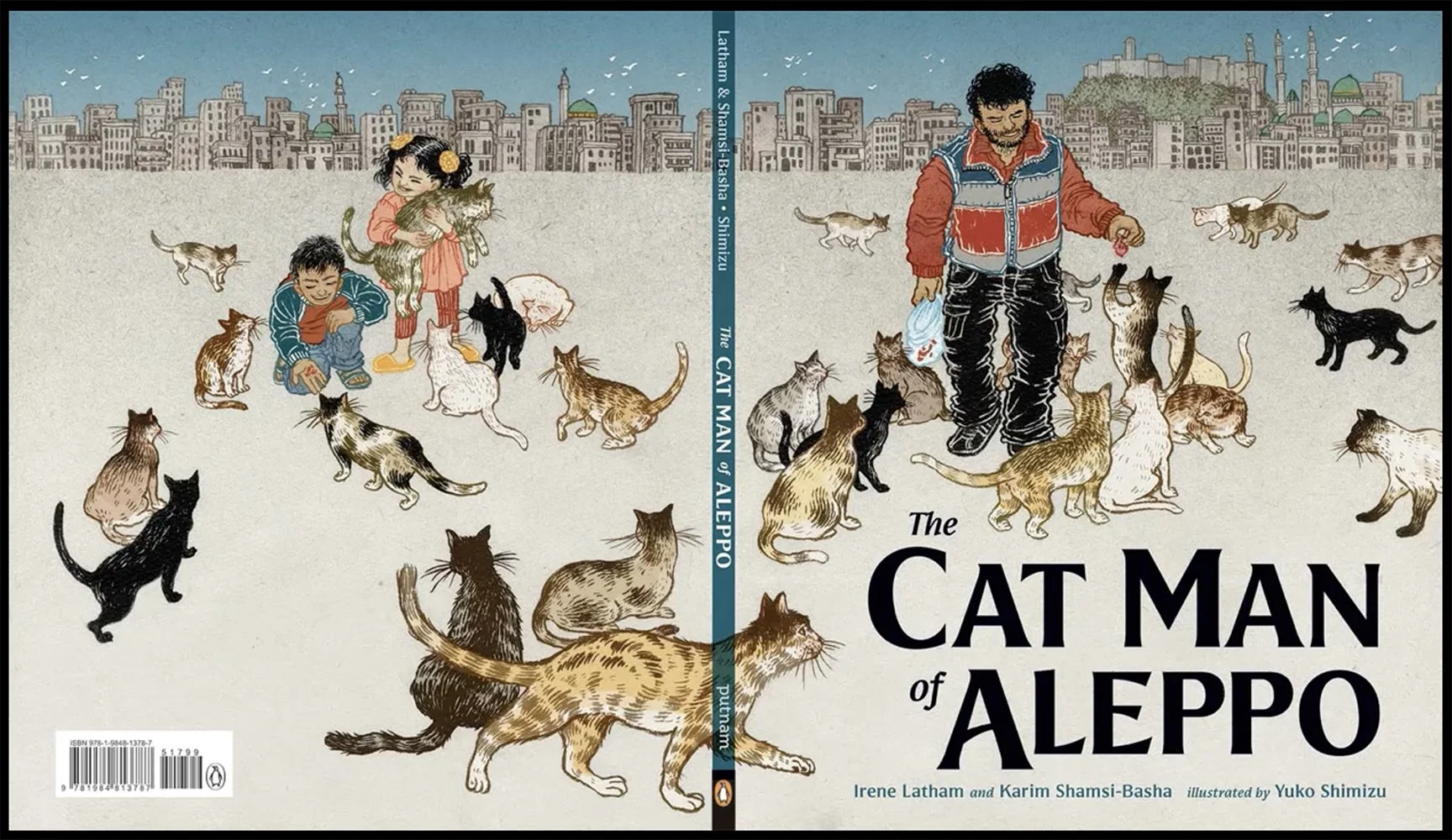A big thanks to Nebraska-SCBWI for hosting a webinar featuring Yuko Shimizu. I’m a big fan of Yuko’s work, and with her permission and the blessing of the Nebraska chapter I’m going to share some quotes from her presentation. I’m devastated about the new war in Ukraine and the continuing bloodshed in Syria. I’m grateful for people like Alaa (the character in the book below) for making the world a better place.
Yuko Shimizu is a multi-award-winning Japanese illustrator based in New York City. Yuko is also an instructor at the School of Visual Arts. You can read more here.
Yuko won the Caldecott Honor for her picturebook THE CAT MAN OF ALEPPO, co-authored by Irene Latham and Karim Shamsi-Basha.
“I’m so very, very, very grateful…[for] getting the [Caldecott Honor] award [for THE CAT MAN OF ALEPPO]…because that will only benefit future generations.”—Yuko Shimizu
Yuko Shimizu spoke a lot about representation when creating illustrations.
“The question [that] comes up [a lot is], am I the right person…for the project?... I don’t want myself to be creating only Japanese art, and I don’t want only Japanese people to create art about my country…Representation is becoming more and more important, but where do you draw the line?...I don’t have the right answer for it right now. How I feel is how much effort you put in to learn[ing] about the culture…country…religion…people [of] that religion that you will be illustrating. And that comes from respecting and admiration. And we as artists try to learn as much as we can to pay respect, and then I think it’s okay.”—Yuko Shimizu
Front an back cover
Yuko told us she has never been to Syria. And because of the war and the pandemic, she was not able to travel to Syria to research the book. She relied on research and sensitivity readers to make her artwork as accurate as possible about the Syrian people and their culture. She also has never had a cat as a pet, but through her thoughtful research and keen observation she made a beautiful book.
“Where does the representation start and end and where does segregation start? I don’t have the answers, but I think about [it]. At the end of the day, what we want is the good stories be told as accurately with respect as possible. I keep that in mind…and I want everyone to think of that moving forward with whatever book you’re creating. And don’t be shy or intimidated [about] creating the world that is not yours, because the world is bigger and…we should be able to do that as artists…”—Yuko Shimizu



